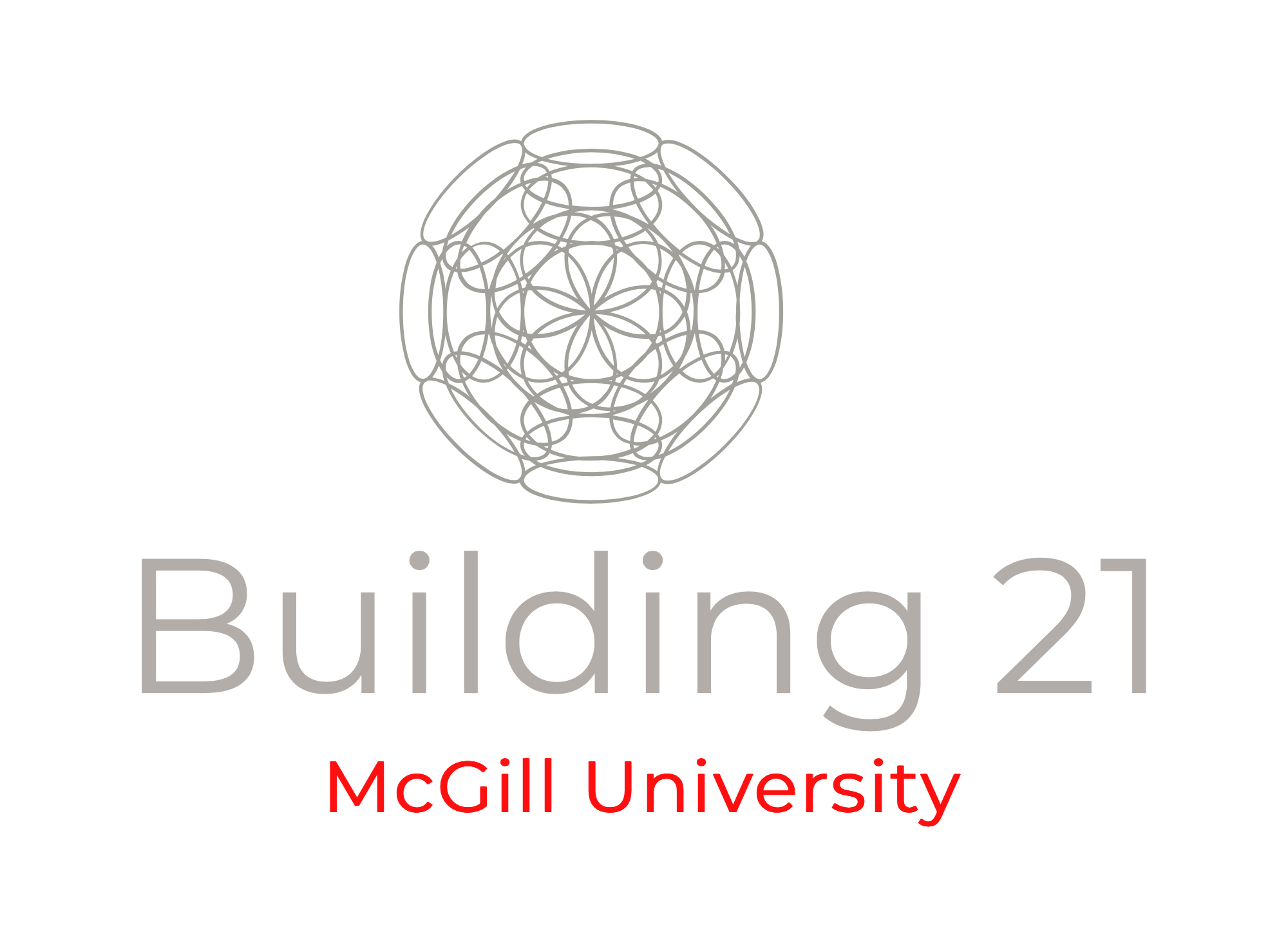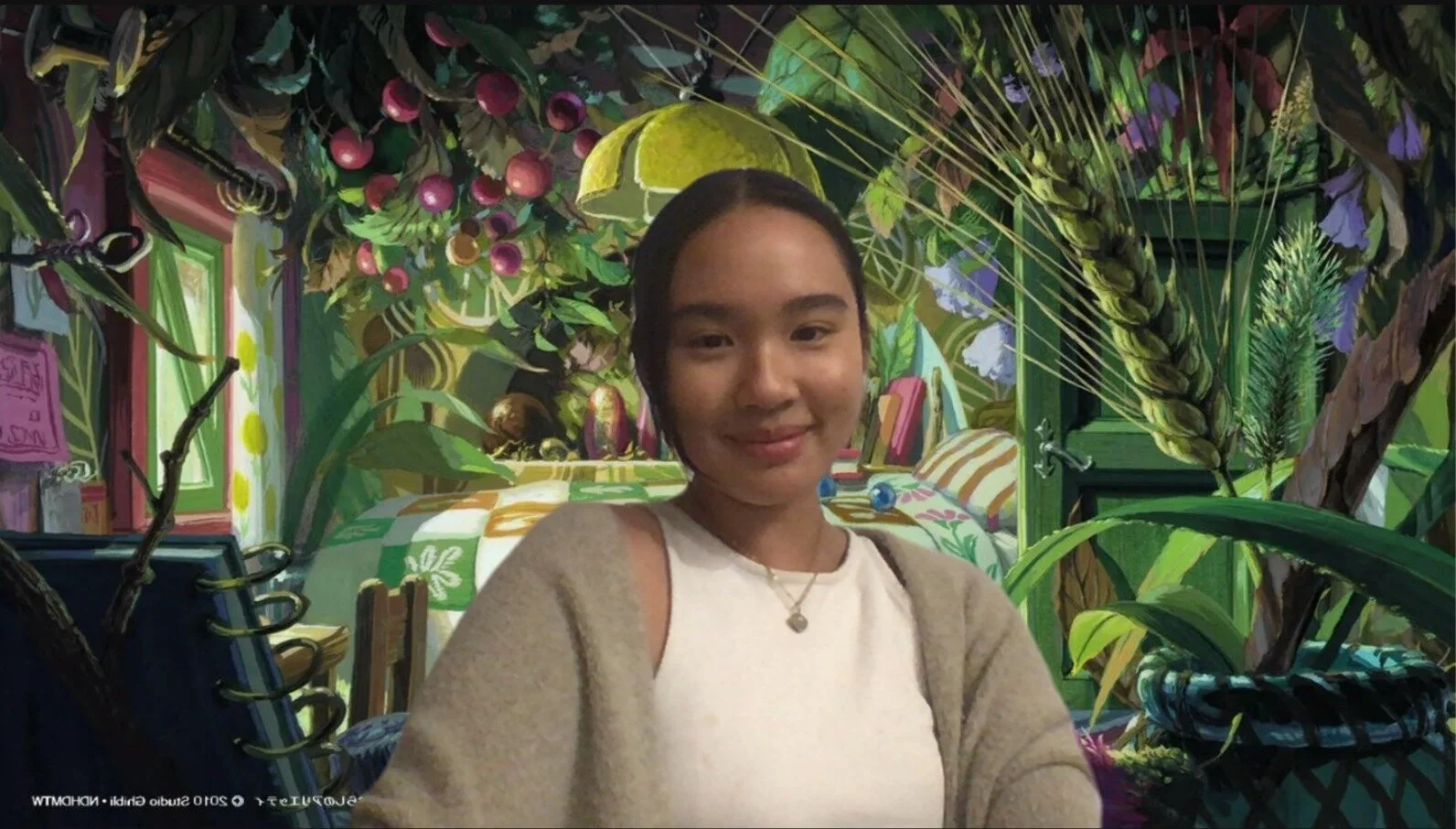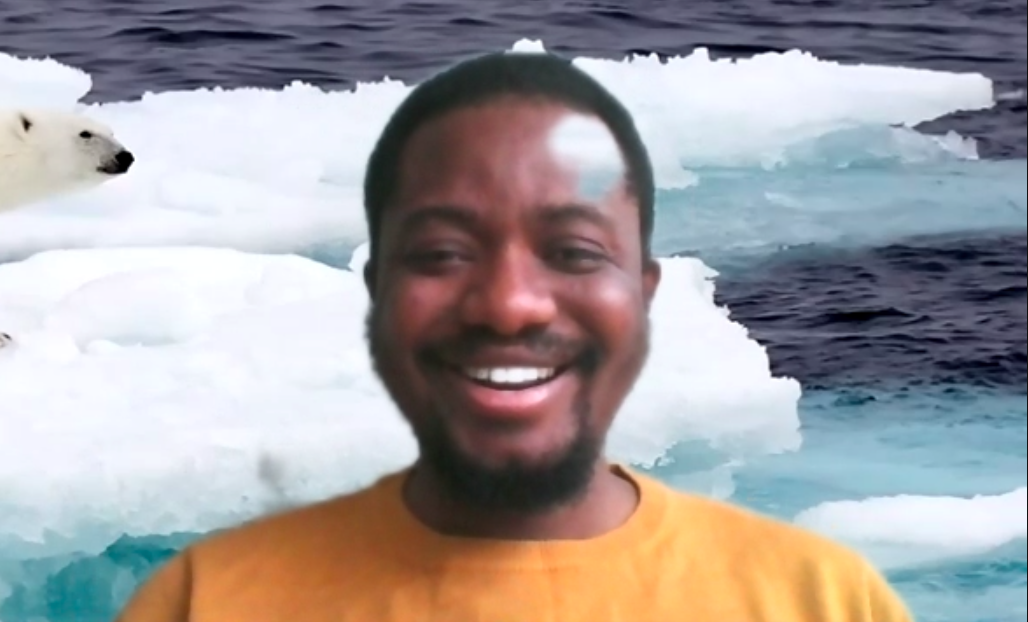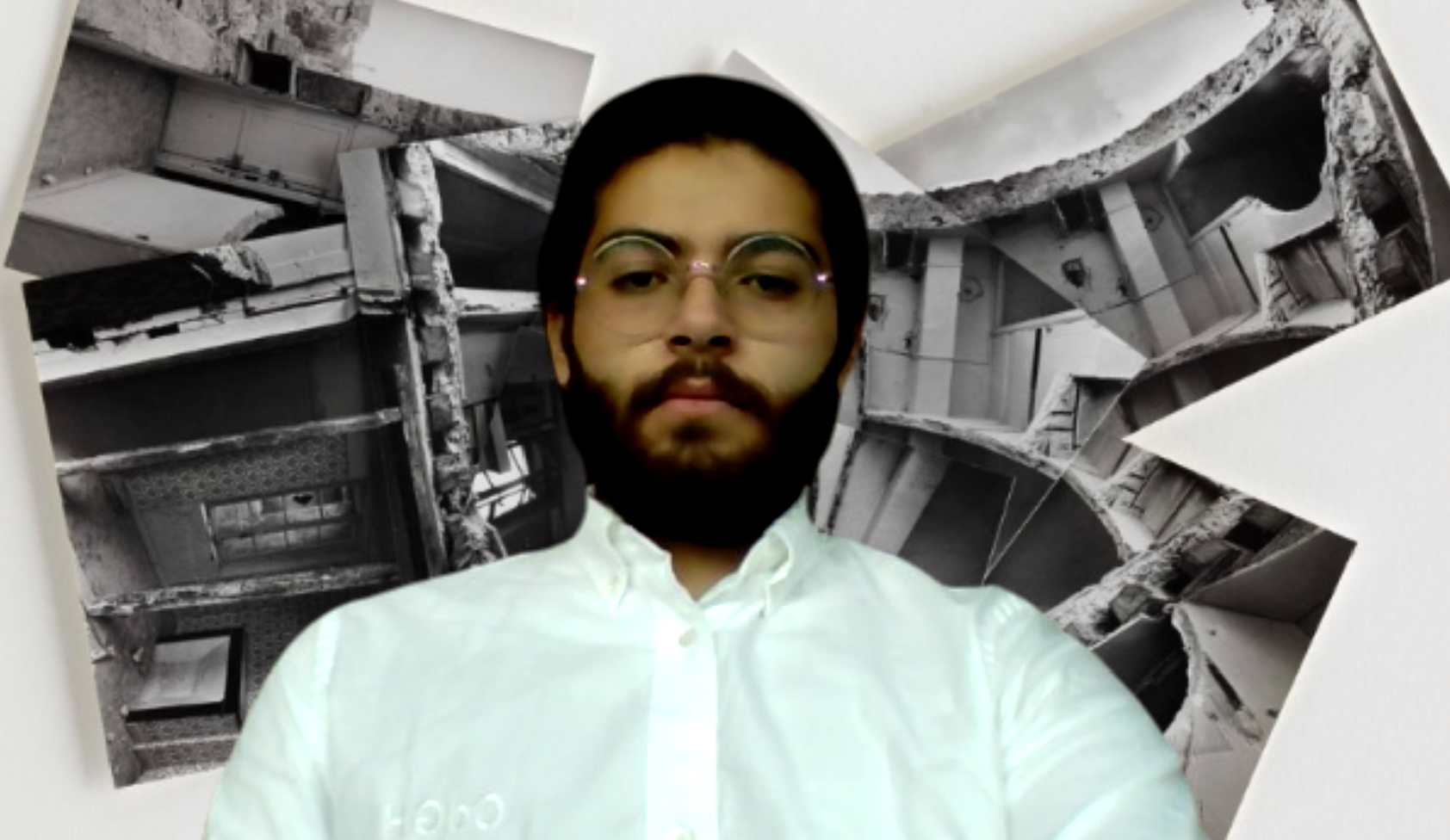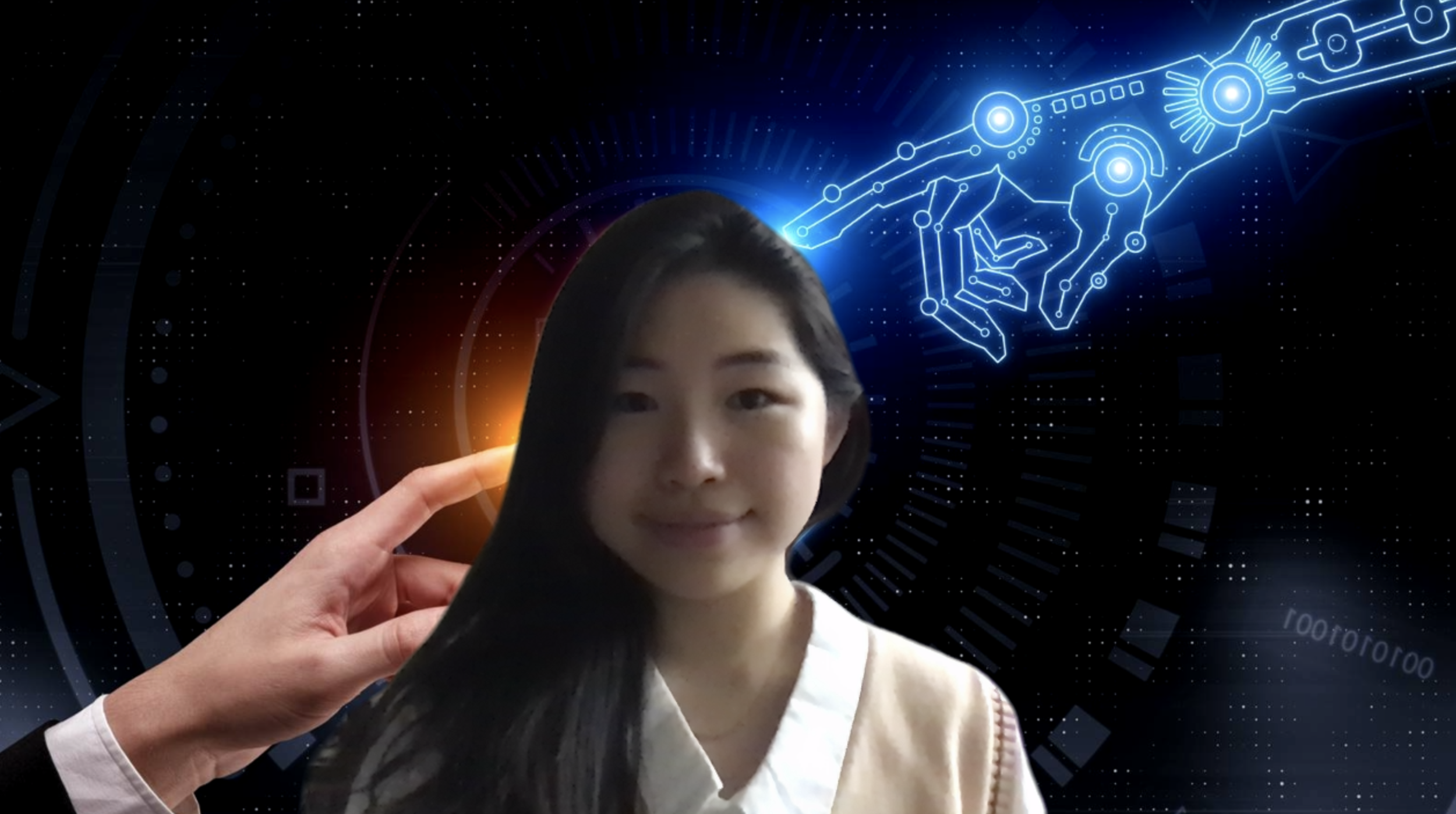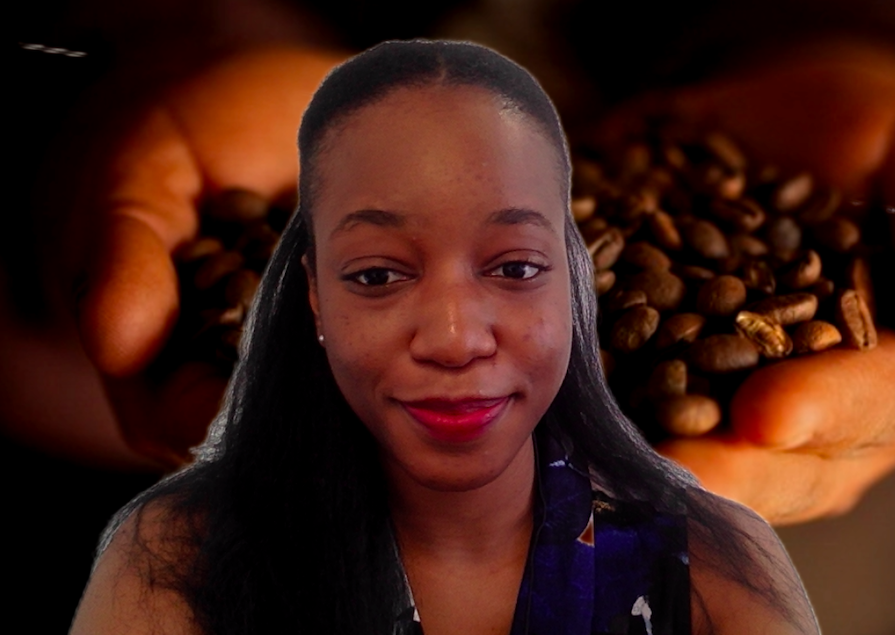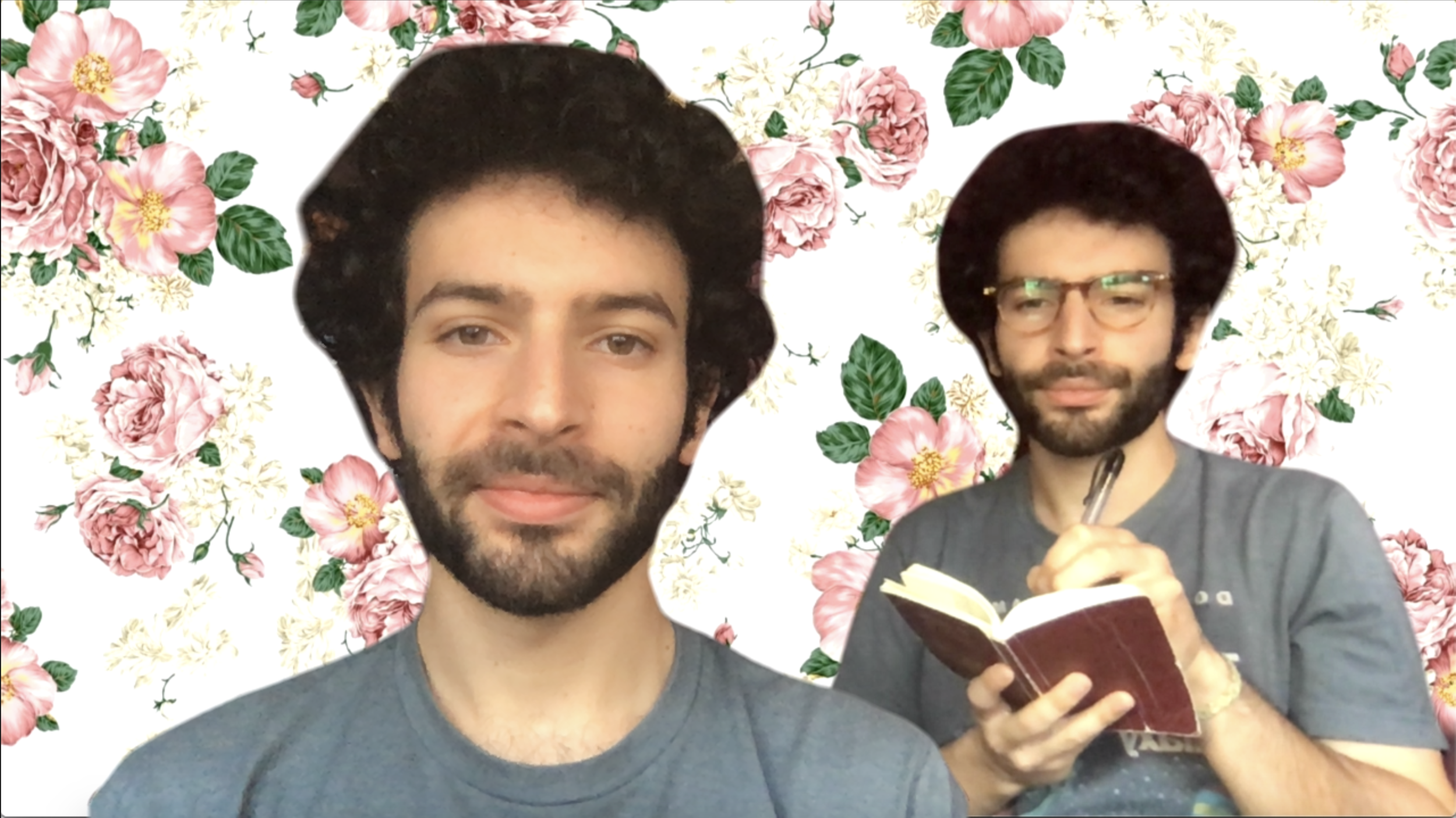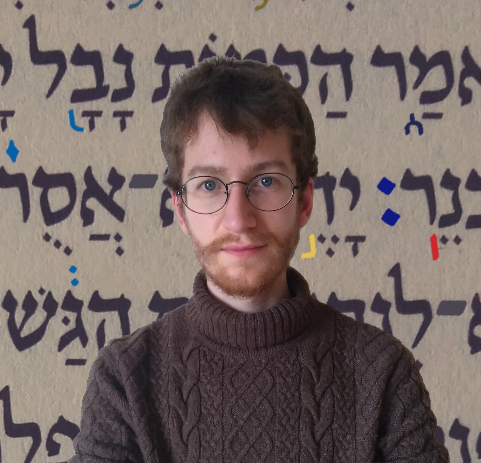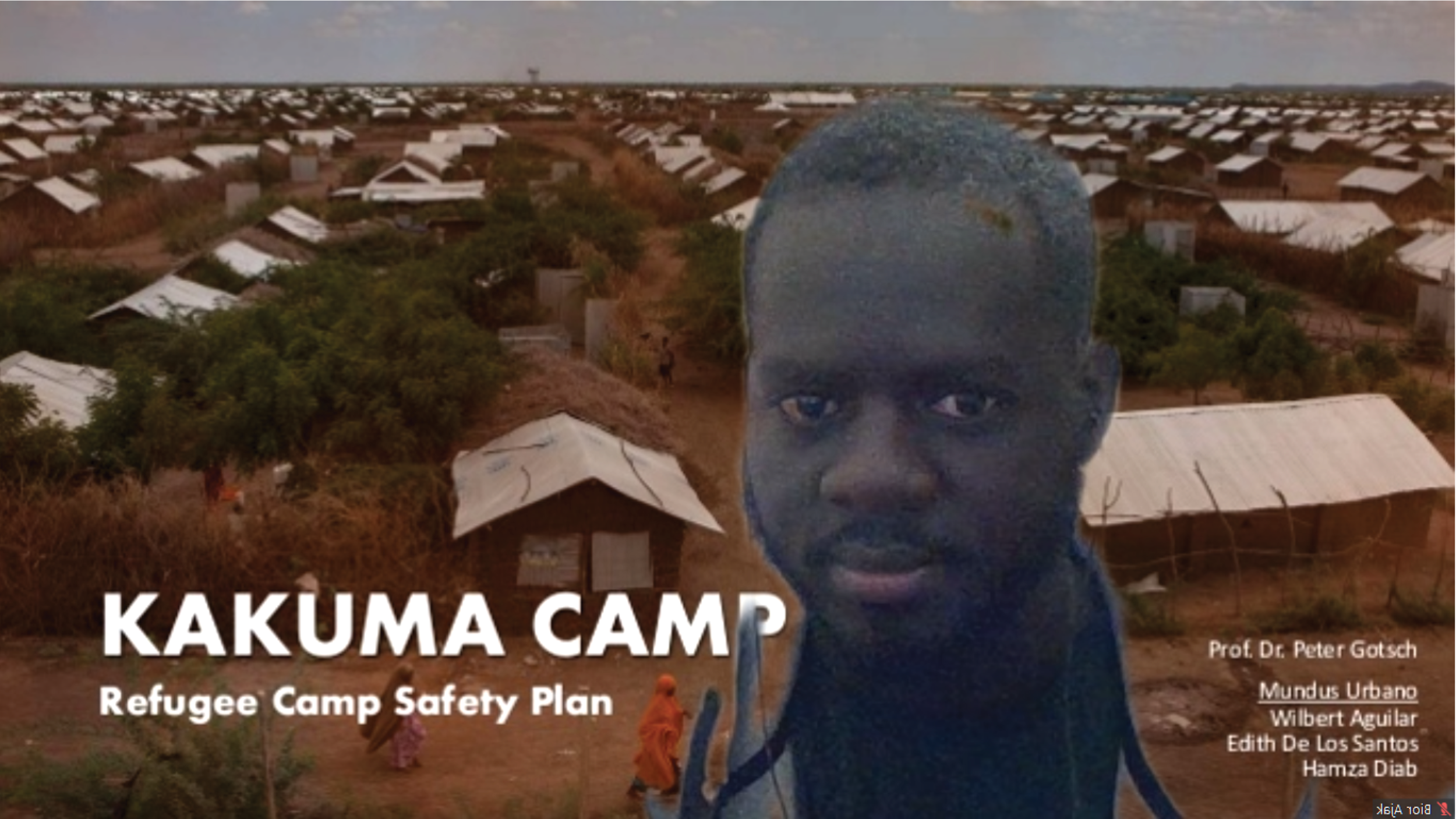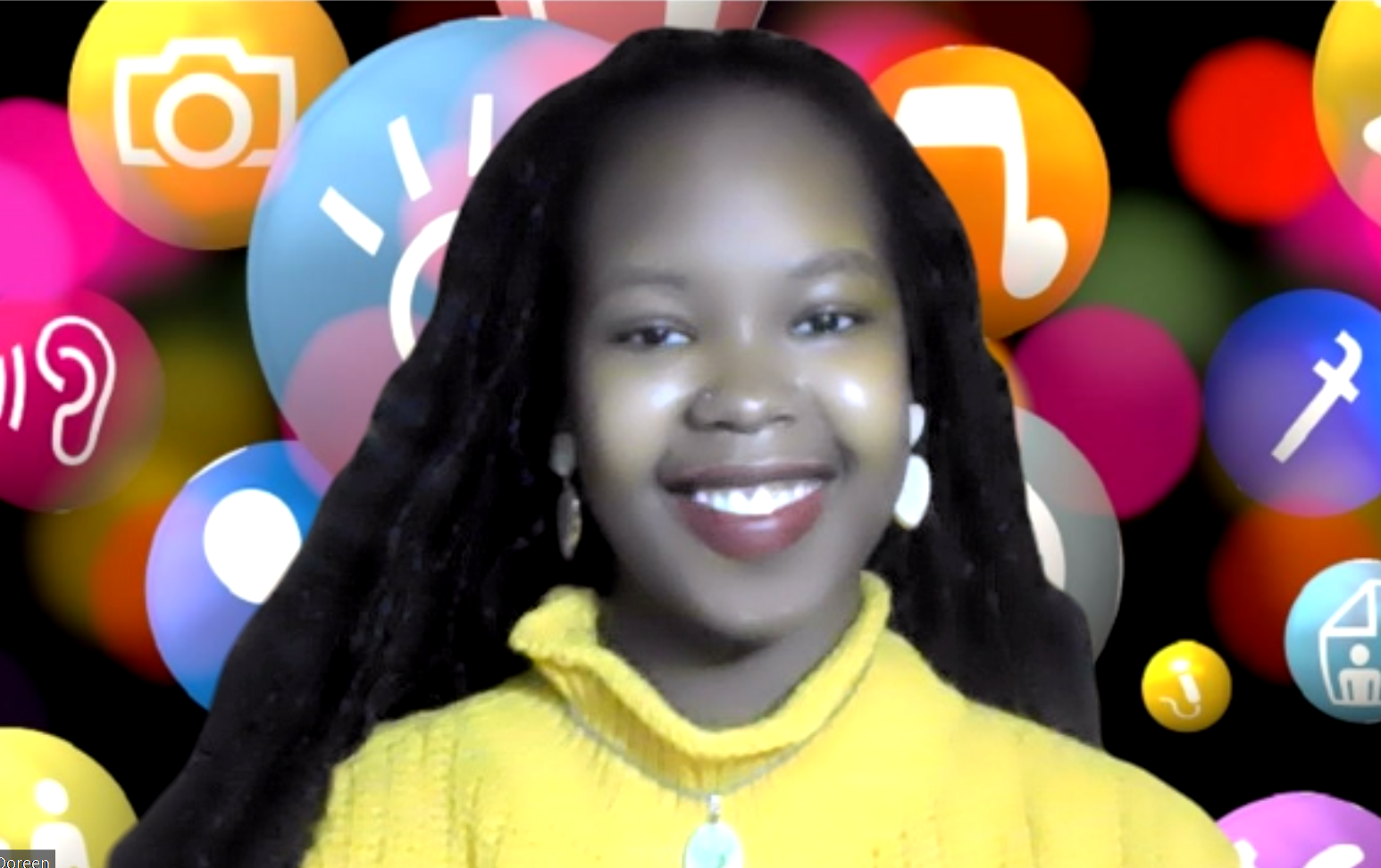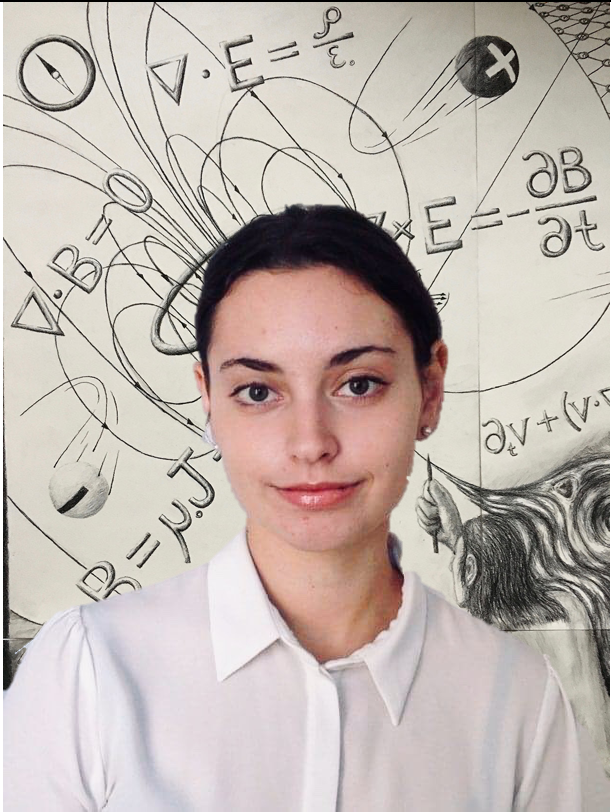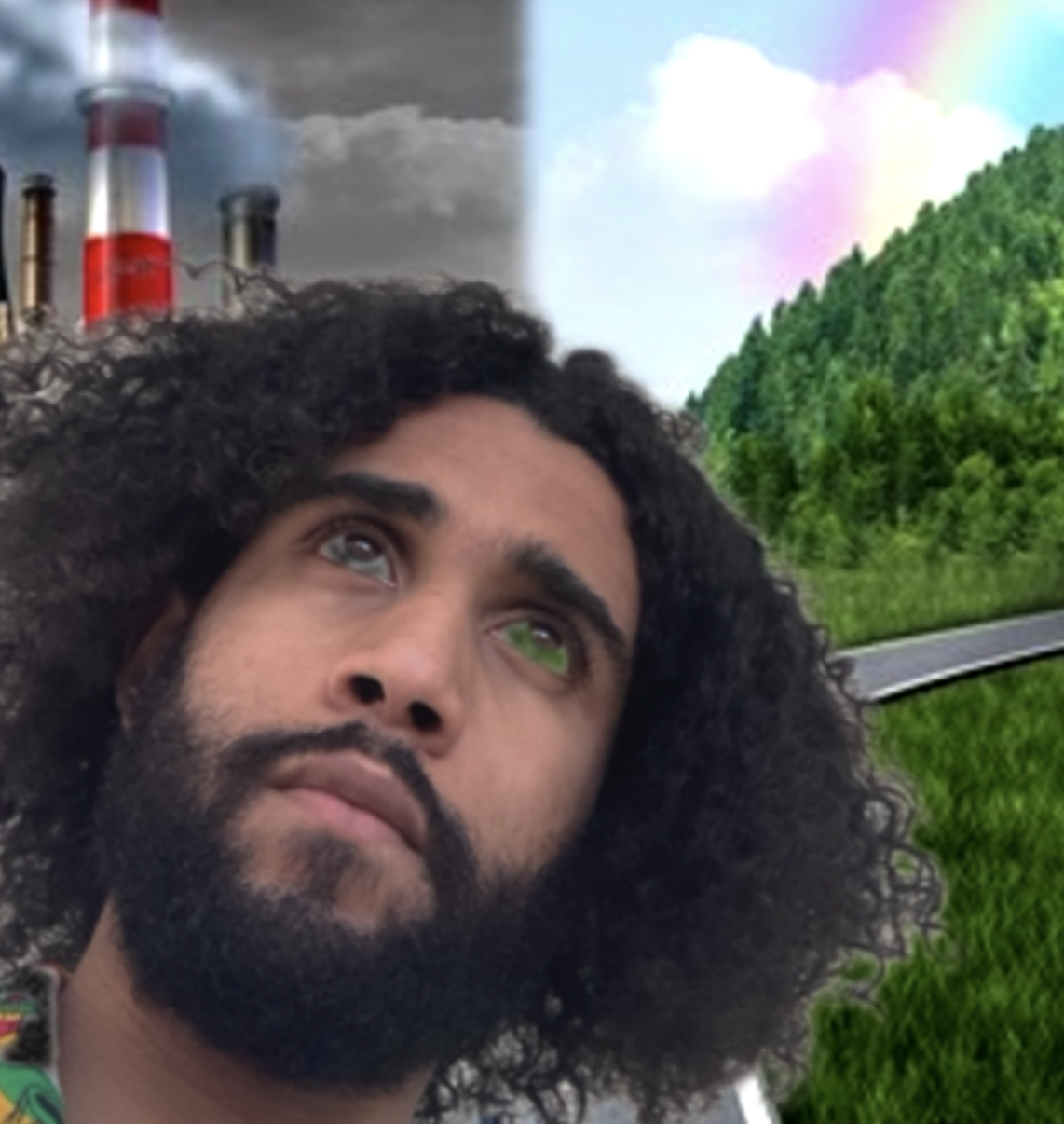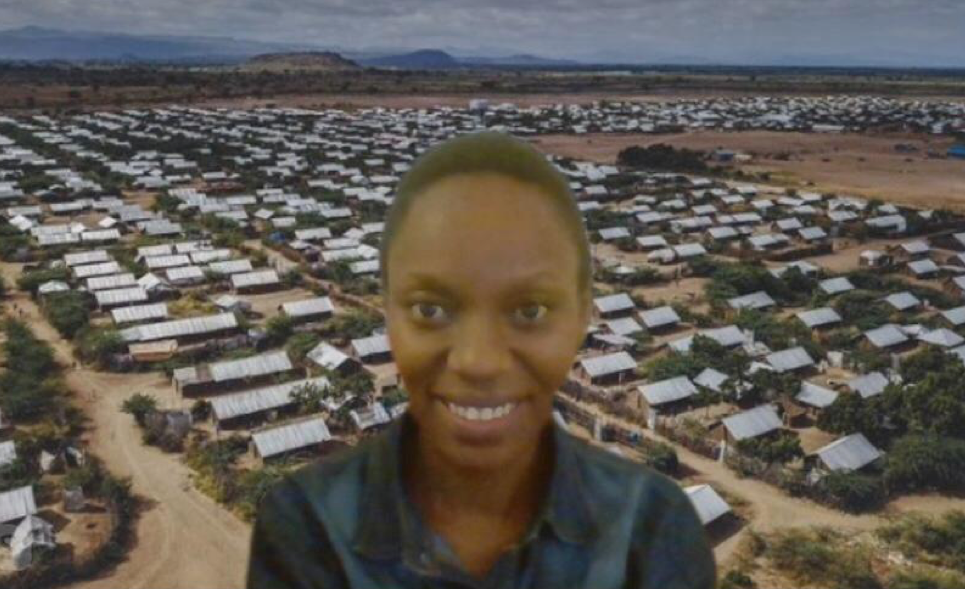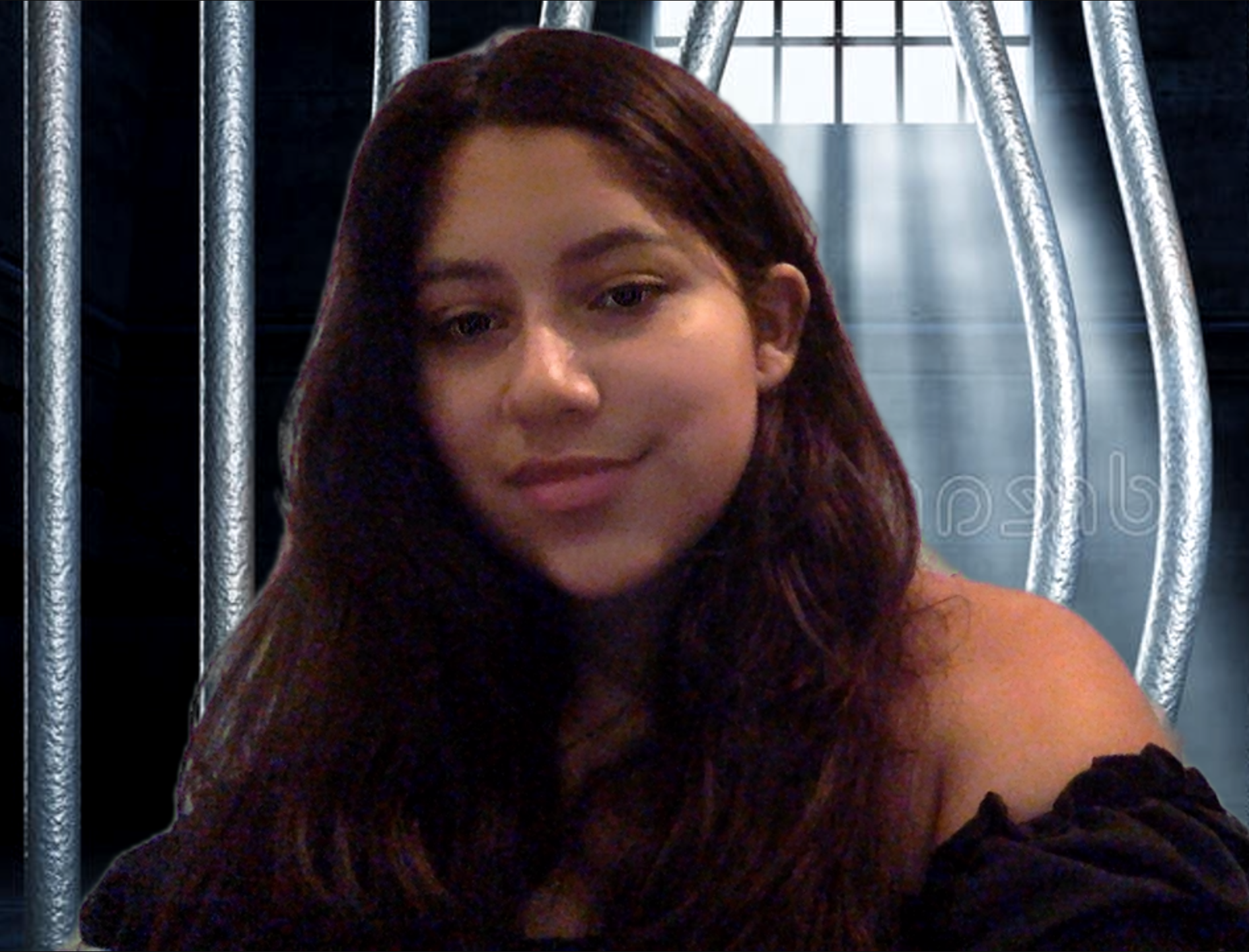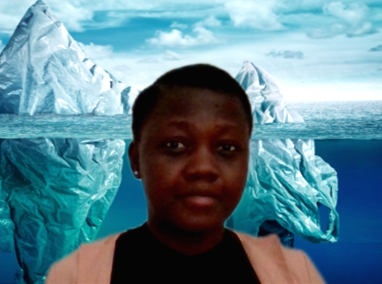BLUE Interns, Fall 2020
Adela Kwok
BA IDS Major, Environment and World Cinema Minors
I’m a fourth year undergraduate student at McGill with a major in International Development and a double minor in Environment & World Cinema. My interests lie deeply in film, the way it is used to practice knowledge and to construct realities that become microcosms of the living world. At BLUE, I am working on an experimental film that explores the concept of nature and the ways in which humans have created meaningful connections to what is considered “natural/untouched”. The most obvious feelings associated to this connection are moments of awe that we experience when exposed to what we would call “natural” landscapes or objects. I am looking to understand how our connection is in one way, conditioned by societal ideologies and in the more important way, intrinsically linked to a communal sense of “being”. Through film, I explore a man-made trail in the night time to prove that this feeling of awe is deeper than knowing if a space is natural but rather based on the condition of consciousness and awareness towards one’s surroundings. Using infrared imagery and a mix of bodily sound & environmental ambience, I try to describe an indescribable feeling by placing the audience “there”.
Watch Adela Kwok’s final presentation:
Iseoluwa Akintunde
PhD Climate Finance Law and Governance
I am an international lawyer interested in questions at the intersection of climate change, poverty, finance, development, multilateralism and global governance. With a legal career spanning nearly a decade, I have sought answers to these difficult questions in Nigeria, Canada, Bangladesh and the United Kingdom and currently completing a doctorate in climate finance law and governance at McGill University’s Faculty of Law.
Climate change is a rapidly deteriorating tragedy, and its impacts are felt in every corner of the world. The arithmetic of climate change is brutal: countries who have contributed the least to global emissions are affected the most by its devastating consequences. However, the level of understanding of the science of climate change and the necessary responses is alarmingly low in many countries. Climate science is often expressed in generic, esoteric terms that pay little attention to the context of the listener. Without effectively understanding the science and issues, citizens would not demand climate action from decision makers.
My Building 21 project focuses on the most effective strategies for climate change communication in a developing country. Put differently, how do I take a complex document like the IPCC Special Report on Global Warming of 1.5 °C and translate it in a way my grandmother, who doesn’t have formal education, would understand?
Watch Iseoluwa Akintunde’s final presentation:
Adam Ghadi-Delgado
Bachelor of Architecture
Adam is recipient of a Bachelor of Architecture from McGill University (B. Sc. Arch 2020). While his interests are diverse, many of them are encompassed and channeled into his BLUE research. His project is a socio-economic, phenomenological, and formal analysis on the practice of Unbuilding. His analysis looks at current significant actors and zeitgeists about material, and otherwise, fluxes in the building industry and the urban landscape. His primary interest in this context is to discover how program breaks down over time as a building breaks down materially. The product is a manifesto for spatial breakdown for the sake of material salvaging and material cycles, creating important cultural agents in the city, and formal-programmatic relationships in formulating architecture.
Watch Adam Ghadi-Delgado’s final presentation:
Cherry Wu
BA Political Science
I am a recent graduate from McGill University with a background in political science and social entrepreneurship. My interest lies at the intersection of innovation, law, and ethics. I’m curious how we could build a governance structure that is responsive to the pace of innovation. In particular, the rapidly developing field of artificial intelligence (AI) has been the focal point for my research. The “black box” problem of AI means that we do not currently understand fully why algorithms make decisions the way they do. This gap in understanding poses a range of interesting questions for our current legal conventions. For example, how could AI-human interactions impact human autonomy, which is a major assumption in criminal law? Further, how could algorithms, which have the power to make inferences, redefine what we know as privacy and ownership? By beginning an inquiry into the fundamental assumptions of our legal conventions, I seek to discover novel approaches to governing AI. Instead of focusing on the malign usage of AI, I find these questions particular relevant because of AI’s ability to extend our possibilities. The fear of not understanding innovation may become roadblocks to innovation. Therefore, at BLUE, I hope that the work I am doing is laying down the stepping stones that may lead to new perspectives on AI and its impact on human society.
Watch Cherry Wu’s final presentation:
Similoluwa Ayoola
LLM, Master of Laws
How can we re-imagine cultural contexts in Nigeria to eliminate the gender divide that exacerbates food insecurity and malnutrition? I am an LLM student in the Faculty of Law at McGill University, and my project at Building 21 explores the impacts of gender inequality on food security, particularly for women who experience risk factors that make them more susceptible to food insecurity. In doing this, I will draw from different cultural practices in Nigeria, and examine their interactions with gender and food insecurity. Through this project, I echo the need for gender-specific measures for achieving the zero hunger sustainable development goal.
Watch Similoluwa Ayoola’s final presentation:
Daniel Korsunsky
BA + BSc. Cognitive Science
Daniel seems to be an undergraduate student studying Cognitive Science and a sucker for good stories, the outdoors, and deliberate incongruity. His research focuses on the phenomenology of humor appreciation, how it flirts with our constructed perceptions of “what is real”, and what it might reveal about the human condition. Humor is one of the most cognitively and culturally complex forms of engagement with ourselves and the world around us, revealing both what we pay the most and least attention to, and allowing us to safely grapple with our anxieties and the unknown. Using ideas from disciplines such as neuroscience, philosophy, and anthropology to create a more unified picture of how we compose our perceptions of the self, the world, and their relationship to one another, we can better understand how humor subverts these conceptual expectations––and, in turn, what our capacity for humor might suggest about the nature of consciousness. Daniel lives in Montreal with his three roommates and one elusive, wretched mouse.
Watch Daniel Korunsky’s final presentation:
Easton Houle
BSc. Biology
When I was starting my studies in Biology at McGill, my perspective on the natural world got a spiritual overhaul with my reading of the Book of Job, as translated by Stephen Mitchell. Having graduated from my Bachelors, I took time to engage with music again, and felt like there was music for this epic poem, even if I had to compose it myself. This past year, and with Building 21, I’ve been investigating Hebrew cantillation and learning the accent systems for prose and poetical texts. The accents (named t’ammim) divide their text syntactically and direct its expressive intonation. While comparing different traditions of melodies for the chant of these texts, and learning to sing some of them, I began to think of this in the same way that I would a system in evolutionary biology: a melodic form recited from written code, inherited through a branch of the tradition, with each branch evolving on its own trajectory but reaching back to a common source in the past. With my BLUE internship, I’d like to organize my research in a way that is sharable with others, as I explore the heights, depths, and expanse of this linguistically aware musical artform.
Watch Easton Houle’s final presentation:
Bior Ajak
BA Economics Major, IDS Minor
I graduated with a Bachelor of Arts in Economics and International Development Studies from McGill in 2019. I am passionate about economics and the provision of financial services; community engage and socio-economic empowerment.
My project is developing a proposal for refugee settlement and management in Kenya. The project focuses on four key pillars:
Investment in tertiary education programs, removing financial barriers for refugee students.
Development of a corporate framework to ensure employment opportunities for qualified refugee graduates in the private sector.
Recognition, Promotion and Development of refugees’ businesses, skills and talents through corporate social responsibility (CSR) programs.
Development of social amenities, modern housing and schools in refugee camps, creating a sense of home and permanence.
Given that the Kenyan government has a strict encampment policy for refugees in their designated areas, this project pushes for the recognition of refugee camps as permanent settlement areas. Therefore, the social and economic policies implemented in the refugee camp should reflect the notion of permanence and property rights, as opposed to the idea that refugee camps are temporary shelters.
Doreen Kiprono
BSc. Microbiology and Molecular Biotechnology
Ubunifu. This is a term used to refer to creativity in Swahili. What does it mean to be creative in today’s world? How have spaces, interactions and perceptions of artistic careers evolved to date? These are just but a few of the questions my project at Blue 21 hopes to explore. My name is Doreen Kiprono and I am a U2 undergraduate student in the Life Science program at Macdonald Campus specializing in Microbiology and Molecular Biotechnology. My project seeks to explore the possibility of creating not just networking platforms but a community where individuals in non-traditional careers such as singing, photography and dancing are able to connect with other colleagues as well as huge industry players such as music labels or theatre and publishing houses. The future is demanding of a diverse workforce and the younger generation has proved that they are able to break from the mould. They are challenging the narrative that the “white collar” nine to five pm type of job is the only respectable way to earn a living. A lot of upcoming youth are resourceful when it comes to creating and posting their content but struggle to market themselves or find mentors in those industries. I intend to investigate the current challenges they face and in close association to their industries. Hopefully this will open up conversations that would fuel creation of platforms such websites, apps or meeting places where such individuals can convene for this purpose.
Salomé Henry
BSc. Biological and Biomedical Sciences
My name is Salomé Henry, and I graduated this past May with a BSc in Biological and Biomedical Sciences from McGill.
It is well known that human physiological systems are often contingent on positive and negative feedback loops. While these varied systems continuously intercept and respond to signals to maintain physiological points of homeostasis, biological entities remain in perpetual states of flux. I was inspired by the biological “reality” of dynamic equilibrium.
I sought to explore analogous concepts of continuous momentum, metamorphosis, non-equilibrium and flux. I was initially curious to understand this form of “scientific” dynamism in the context of the subjective experience, yet have expanded my analysis to literature, sociology and economics. Walter Pater writes: “what is secure in our existence is but the sharp apex of the present moment … and all that is real in our experience is a series of fleeting impressions.” I ask: how do these “fleeting impressions” of sensory experience – such as encounters with art or the natural world - elicit joy and delight? Can we marvel similarly at the transience of our own physiological processes? Lastly, how can Pater’s proposition of the “moment,” a proposition of an alternate conception of temporality - alter our discourse on systematic movement and physiological systems?
My project has subsequently developed into a broader analysis of scientific structures, systems and signals. Can scientific “realities” encourage us to think differently, schematically and conceptually? Do they predispose any conceptual “truths” – i.e., the necessity of contradiction? How can scientific models allow us to reimagine boundaries and forces in economics, or re-examine notions of instability and polarization in society? While I may never do it justice, this is my small ode to science and everything it might provide - either in truth or beauty.
Watch Salomé Henry’s final presentation:
Upasana Dasgupta
PhD Faculty of Law and Institute of Air and Space Law
What would be the state of affairs in international space governance in 2050? Will the States be willing to cooperate to solve the problem of space environment and space traffic management? This is an extension of my research for my doctoral thesis titled “Preventing Collisions in Outer Space: Towards Better Implementation of State Responsibility”. At present, outer space offers unprecedented benefits to humanity from extensive and inexpensive communications to mitigation and management of disasters. However, increase in satellites in space is resulting in increase in space debris, primarily due to collisions in outer space. It is expected that there will be exponential growth of space debris, which will seriously threaten sustainability of space exploration and utilization.
My B21 project is describing in narrative format how I envision the space environment problem would stand 30 years from now. It is portrayal of the ideal solution of the space environment pollution problem as per my understanding. What I wish to produce at the end of 8 weeks is a transcript of a workshop series that I am conducting in 2050 for school students to make them understand the importance of governance of space environment and the long strides taken by humanity in that direction since the beginning of space age.
Watch Upasana Dasgupta’s final presentation:
Dajou Cottrell
BA Anthropology
Dajou graduated from McGill in 2020 with a B.A in Anthropology. Dajou’s project was inspired from her passion for preserving cultural traditions and the history of the African Diaspora. Her research paper titled “Semiotics of Resistance, Land Rights, Displacement and the Cultural Cryptography of Hair”, examines, how cultural codes displayed on the body can serve as a form of resistance. Using an intersectional lens of (resistance theory, land issues, cartography, and cultural identity) Dajou is attempting recant and share culturally fused movements of resistance within Afro-Colombian culture.
Watch Dajou Cottrell’s final presentation:
Yves Abanda
BSc. Physics Major, Environment Minor
I graduated from McGill with a Bachelors of Liberal Sciences in physics with a minor in environmental studies in 2020. As an undergraduate student, I underwent a profound existential and spiritual crisis. It felt like the structure of education I was immersed in was obsolete compared to the reality of the predicaments I believed our generation and the unborn was about to face.
Our relationship to the future - expectations, narratives, domains of certainty/uncertainty/possibility, beliefs and desires/fears about what shall and could unfold - seems to affect our decisions on how to presently live our lives. They also seem tied to our value systems and emotional and psychological wellbeing : on the road to our deepest dreams lie our greatest fears. On a larger scale, I hypothesize that looking at the predictions and prophecies societies take to be true, as well as who gains from/has the power to forge and disseminate beliefs about the future can tell us a lot about their functioning and likelihood to last. I am reminded of this every time I hear about the eco-anxiety and resolve of a collapsonaut flirting with the doomsday apocalypse, or when I encounter the optimism and magnetism of narratives of technological development, the future of AI, nuclear fusion or the terraformation of Mars brightening the future of mankind like the promised land.
By zooming in on these two stereotyped postures , my project “Dreaming of Mars in the face of collapse : deep adaptation and decolonization of our relationships to possible and uncertain futures” explores our relationship to the future in terms of how it affects our behaviour, health, and capacity to sustain a society.
Watch Yves Abanda’s final presentation:
Renatha Giramahoro
MSc. Public Health
Renatha Giramahoro is a Master of Science in Public Health candidate at McGill University in Canada. She is passionate about the improvement of healthcare systems in developing countries, and the betterment of health status of the forgotten and marginalized population. Renatha was born and raised in Rwanda. She holds a bachelor’s degree in Medical Laboratory Science from Oklahoma Christian University, USA. She participated in various public health related initiatives in Rwanda, Mauritania and Tanzania. Giving back to the community through the creation and implementation of innovative initiatives is what motivates Renatha to aim high and work hard. Renatha grew up in a rural area with no electricity and water. However, her life course was changed thanks to education. The opportunities that were given to her to pursue education in her home country and abroad have been the basis for a better and brighter future. There are other young girls and boys whose future can be brightened by providing them with a platform for quality education, therefore employment opportunities. Children in refugee camps are not only affected by the sudden displacements, but also the lack of a clear vision of their future. How can these future leaders, doctors, engineers, talented musicians and so on be empowered and supported to pursue their goals and dreams? What if all the school aged children in refugee camps were attending schools? How would it feel to see more resilient communities in refugee camps? All these questions have ignited in me a passion to contribute to the betterment of people in refugee camps by investing in education and employment opportunities. Thanks to the Building21 network, I got an opportunity to work on a project that aims at improving the education system in refugee camps, as well as bringing about sustainable development by supporting community resilience.
Ximena Ramirez Villanueva
BA Sociology + IDS
I am a Joint Honours student in Sociology and International Development Studies. Although interested by an array of topics, I've concentrated my research for the past few years on the sociology of crime, the intricacies of migration, and imperialism. My Building 21 project analyzes the criminalization of migration in the United States through a prison abolitionist perspective. The belief in abolition is first and foremost philosophical. It is a desire for a society that centers freedom and justice, instead of profit and punishment. It is through this lens that we argue that the growing number of migrants who are incarcerated in immigrant detention centers, as well in jails and prisons, can be halted by dismantling the process that punishes people for their failure to enter the United States without documents. I bring many questions with me to Building 21: Would the decriminalization of migration through the abolition of border security alongside community investment create a safer world? What are borders if not determined by their security? Ultimately, can we build a safe world without borders?
Olubukola Alimi
PhD Chemical Engineering
We are drowning in the plastics we once consumed and produced. All the plastics we have improperly discarded are now coming back to us via our food, air and water. But how is plastic pollution represented in the media? Is there efficient coverage to lead to changed behaviour amongst consumers?
I am a graduate student at the department of chemical engineering at McGill. My doctoral research is focused on understanding the behaviour of plastics in the environment at the nanoscale.
At Building 21, I am interested in is the role of news media on this problem in Nigeria. I am particularly curious on the trends/patterns and extent of media coverage about plastic pollution in Nigeria and the attitudes from consumers. By using machine learning to qualitatively explore this information, I hope to intuitively create awareness amongst plastic consumers in Nigeria.
